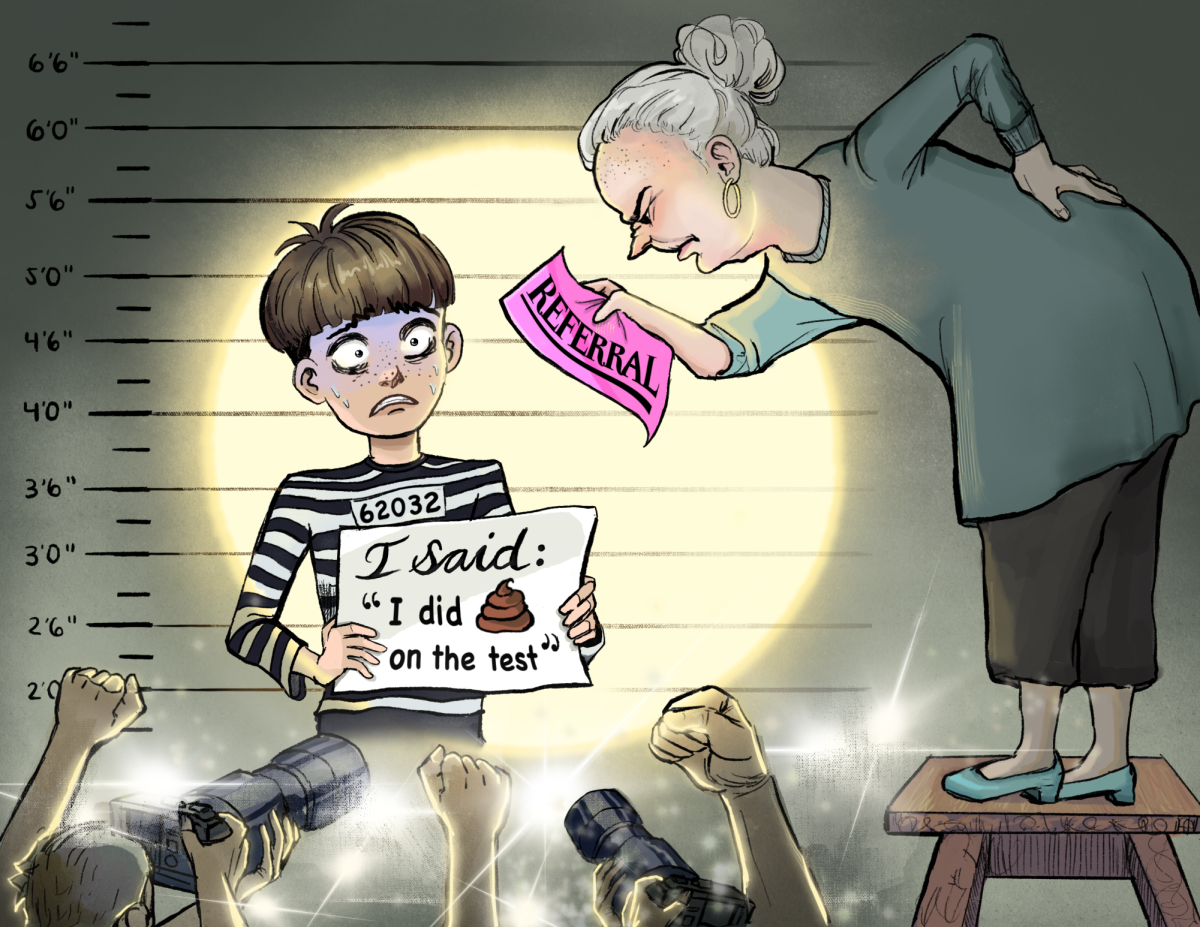Swearing is now banned at Naperville Central.
The school introduced new guidelines about student use of profanity at the beginning of the school year, claiming that swearing is not appropriate in a school or professional setting, despite its social acceptability.
These guidelines direct teachers and staff to correct students for the use of swearing even beyond the classroom, in unstructured areas such as the lunchroom or hallways. Additionally, teachers have been instructed to filter their language while at school, even outside the presence of students. The protocol for enforcing appropriate language within the classroom is broken into three tiers.
When inappropriate/harmful language is heard, tier one expectations instruct teachers to have a one-on-one conversation with the student regarding the language. If the language causes harm or is overtly offensive it immediately moves to tier two interventions which may lead to a Dean referral where the student will have a continued conversation about appropriate language. The final, third tier calls for CRC, parents, student services, or student advocate involvement.
Surprisingly, tier three intervention for foul language can reach the same level of discipline as absenteeism, which calls for parent intervention after seven days of missed class. To say that a swear-free environment holds as much academic value as showing up to class is a clear misrepresentation of the problem.
These rules don’t reflect how language is used outside of school or in a “professional setting.” In the real world, the words we choose—and how they are received—depend heavily on context.
It should be up to the individual teachers’ discretion on how to handle cursing in their classroom. Blanket bans do teach kids to restrict their language but so can policies that allow for self-governance.
It’s true that regulating the language students and teachers use in school is one way to foster a safe and professional environment. Swearing around fellow students has the potential to make them feel uncomfortable or disrespected. There are also instances when swearing in school is understandably inappropriate, whether it’s dropping an f-bomb next to a Redhawk preschooler or cussing out your teacher.
But that doesn’t mean cursing is always harmful or inappropriate. Just as blended classes were implemented to help prepare students for the online learning environments that they will likely experience in college and in the workplace, school policy regarding swearing should emulate communication social norms.
After graduation, there is no administrator telling you to “watch your language.” Instead, it’s up to you to determine whether or not your language could be received as offensive or just poor taste. It’s commonly considered to be a poor decision to curse in a job interview, but in other professional settings, the same language might be less problematic. Even within a workplace, from coworker to coworker, the language you use will differ.
Swearing, oftentimes, causes no harm. Among friends, for example, casual swearing is seen as a way to express frustration, humor, or excitement. This doesn’t change when you enter Central. On the sports field you’re sure to hear at least one curse and in creative spaces like art or music swear words are frequently used to emphasize emotion or convey authenticity. Many classes at Central even teach lessons about books or movies with explicit language because it doesn’t directly take away from the educational value of such material.
It’s important to note the difference between commonly accepted curse words, and slurs or derogatory language. The intent and impact of these two types of language are fundamentally different. While curse words are often used without specifically targeting or harming a particular individual or group, slurs and derogatory lange are often designed to insult and dehumanize people based on race, gender, sexual orientation or disability. Directed slurs should never be accepted in a school environment, or any other place in society.
With such a context dependent issue, blanket bans on swearing feel overly simplistic. What words are acceptable and what instances are taboo is not black-and-white. Central may have adopted this policy to prevent potential conflict and to shape the school environment, but in doing so they may take away an opportunity to help students develop the ability to navigate language thoughtfully and adapt to different social settings.




